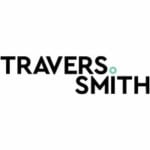-
What kinds of incentive plan are most commonly offered and to whom?
-
What kinds of share option plan can be offered?
-
What kinds of share acquisition/share purchase plan can be offered?
-
What other forms of long-term incentives (including cash plans) can be offered?
-
Are there any limits on who can participate in an incentive plan and the extent to which they can participate?
-
Can awards be made subject to performance criteria, vesting schedules and forfeiture?
-
Can awards be made subject to post-vesting and/or post-employment holding periods. If so, how prevalent are these provisions both generally and by reference to specific sectors?
-
How prevalent malus and clawback provisions are and both generally and by reference to specific sectors?
-
What are the tax and social security consequences for participants in an incentive plan including: (i) on grant; (ii) on vesting; (iii) on exercise; (iv) on the acquisition, holding and/or disposal of any underlying shares or securities; and (v) in connection with any loans offered to participants (either by the company operating the incentive plan, the employer of the participant (if different) or a third party) as part of the incentive plan.
-
What are the tax and social security consequences for companies operating an incentive plan? (i) on grant; (ii) on vesting; (iii) on exercise; (iv) on the acquisition, holding and/or disposal of any underlying shares or securities; (v) in connection with any loans offered to participants (either by the company operating the incentive plan, the employer of the participant (if different) or a third party) as part of the incentive plan.
-
What are the reporting/notification/filing requirements applicable to an incentive plan?
-
Do participants in incentive plans have a right to compensation for loss of their awards when their employment terminates? Does the reason for the termination matter?
-
Do any data protection requirements apply to the operation of an incentive plan?
-
Are there any corporate governance guidelines that apply to the operation of incentive plans?
-
Are there any prospectus or securities law requirements that apply to the operation of incentive plans?
-
Do any specialist regulatory regimes apply to incentive plans?
-
Are there any exchange control restrictions that affect the operation of incentive plans?
-
What is the formal process for granting awards under an incentive plan?
-
Can an overseas corporation operate an incentive plan?
-
Can an overseas employee participate in an incentive plan?
-
How are share options or awards held by an internationally mobile employee taxed?
-
How are cash-based incentives held by an internationally mobile employee taxed?
-
What trends in incentive plan design have you observed over the last 12 months?
-
What are the current developments and proposals for reform that will affect the operation of incentive plans over the next 12 months?
The Netherlands: Employee Incentives
This country-specific Q&A provides an overview of Employee Incentives laws and regulations applicable in The Netherlands.












